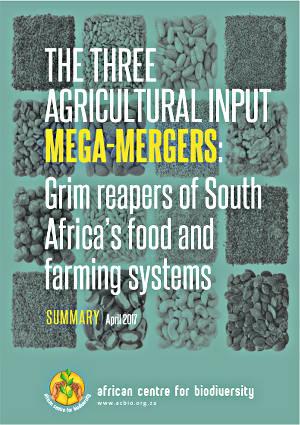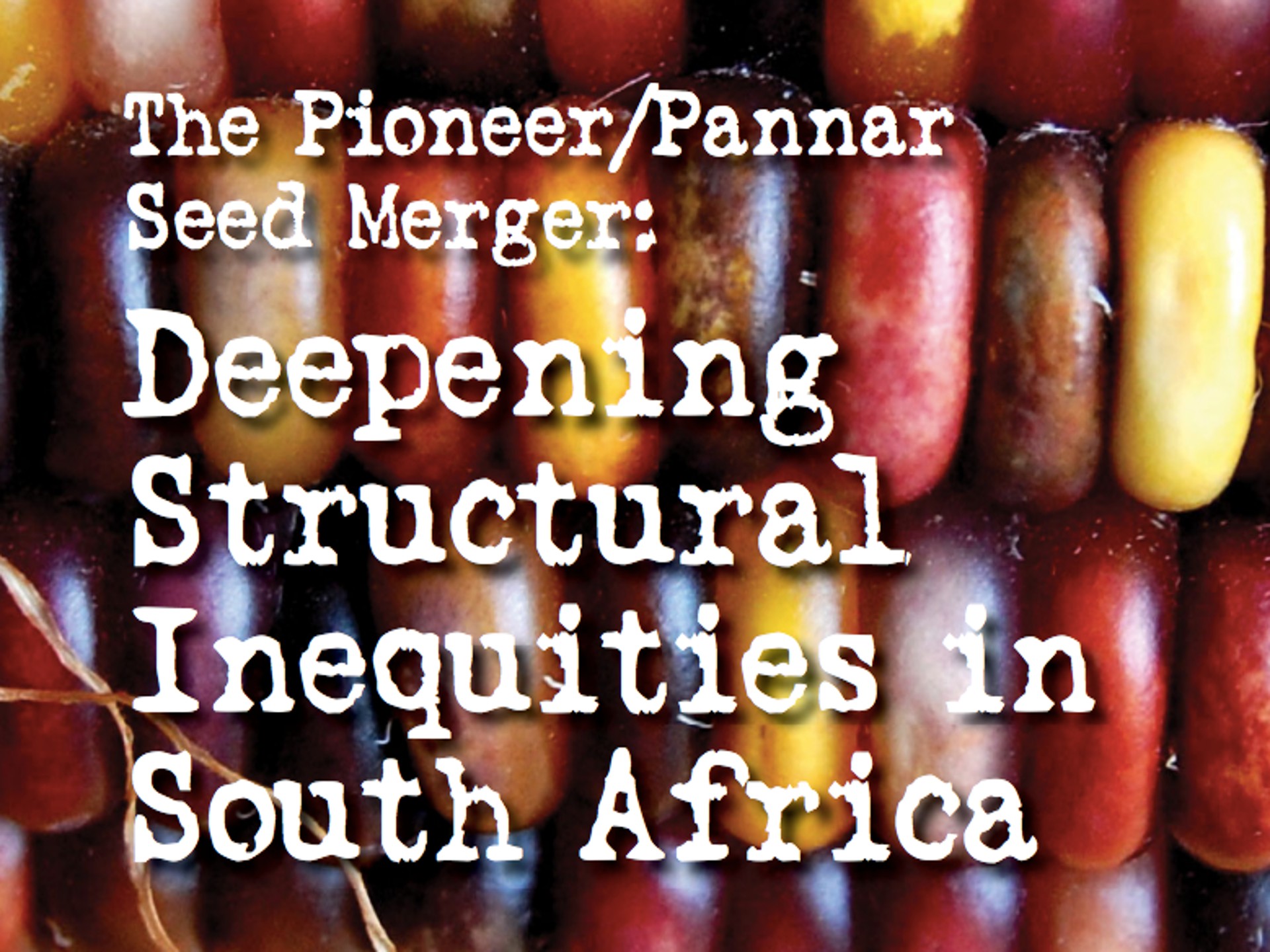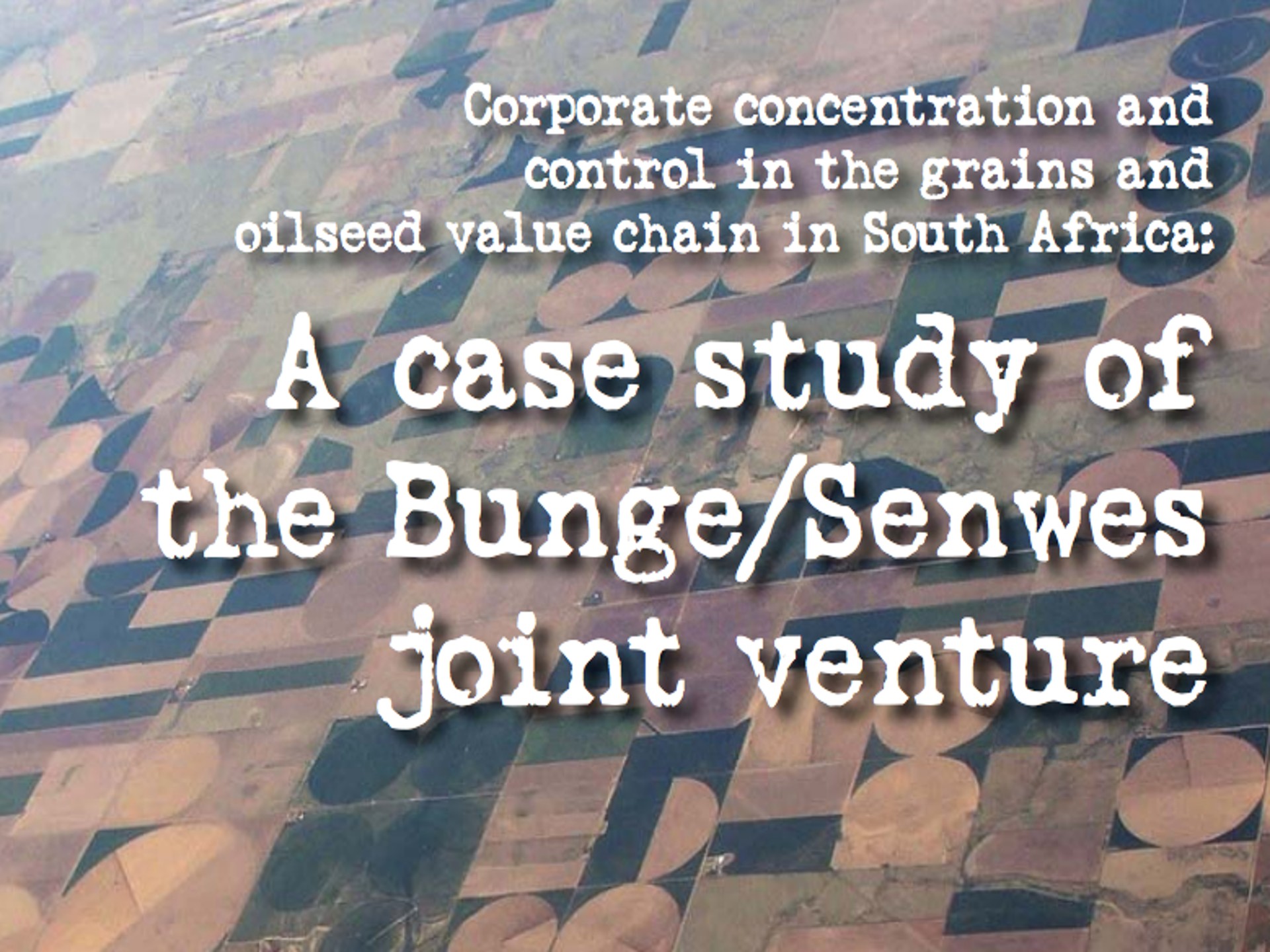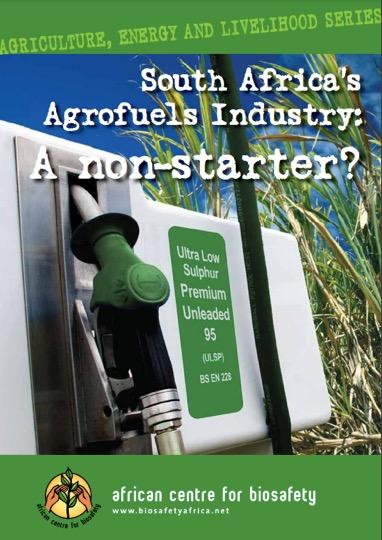Latest Resources

20 June 2018
What Does Synthetic Biology Mean for Africa? – An Africa Regional Briefing publication prod...
Huge technical advances in molecular biology and big data biology are leading us towards a ‘forth industrial revolution’ with the ongoing development of novel genetic engineering techniques being reviewed by the UN Conventions for Biological Diversity, under the term ‘synthetic biology’. Such techniques are widening the scope and extent to which organisms can be modified, […]

9 February 2018
Press Release: No benefit to imminent release of risky GM mosquitoes in Burkina Faso
Genetically modified (GM) “male-sterile” mosquitoes are due to be released in Burkina Faso this year by the Target Malaria research consortium. However, Target Malaria acknowledges that there are no benefits to the proposed GM mosquito release. The project is set to apply for a permit to make an open release of 10,000 GM Anopheles gambiae […]

8 February 2018
Briefing Paper: GM Mosquitoes in Burkina Faso
In this briefing paper ACB, TWN and GeneWatch UK discuss that genetically modified (GM) mosquitoes were exported from Imperial College in London to Burkina Faso in November 2016. They are currently in “contained use” facilities in Bobo-Dioulasso, and are being used in experiments by a research consortium called Target Malaria. However, these GM mosquitoes are […]

5 July 2017
Decolonising Food Systems and Sowing Seeds of Resistance
The briefing paper challenges us to reclaim our connection to seed, food and each other and to engage in new food politics. Download pdf.

11 April 2017
Mega-mergers: 3 giant corporations controlling South Africa’s food and farming systems
This briefing deals with the three mega mergers taking place in the agriculture sector as Dow Chemical and DuPont are set to merge, China National Chemical Corporation (ChemChina) is to acquire Syngenta and Bayer is to acquire Monsanto. The proposed Bayer-Monsanto merger will give control of almost 30% of the world’s commercial seed market and […]

30 August 2015
AFAP in Ghana, Mozambique and Tanzania—for profits or people?
The chemical fertiliser push in Africa and its implications for smallholder farmers is not receiving enough attention in current discourses concerning Green Revolution policies and practises in Africa. Yet chemical fertilisers are big business on the continent, where its adoption is strongly supported by African governments through subsidy schemes and regional organisations such as NEPAD, […]

13 September 2012
The Pioneer/Pannar seed merger: deepening structural inequalities in South Africa
In this briefing, we deal with the Pioneer/Pannar seed merger, outlining the evidence led by the ACB in opposing the merger, what is at stake for South Africa if the merger is approved and the extent to which the merger will deepen structural imbalances in the South African economy. Read the briefing here.

3 October 2011
Corporate concentration and control in the grains and oilseed value chain in South Africa: A case...
The Bunge/Senwes joint venture signals the first significant investment by Bunge in Africa. Bunge is one of the world’s largest and most influential corporations and is amongst a handful of companies dominating global trade in agricultural commodities. Senwes holds a dominant position in the South African market for the storage and handling of grain crops. […]

24 March 2011
South Africa’s Agrofuel’s Industry: A non-starter?
This paper provides a brief overview of the biofuels industry in the context of the South African government’s 2008 policy. Our key finding is that the large-scale biofuels industry has stagnated almost to the point of non-existence. There is, however, a growing impetus to address the shortcomings in government policy that has held the industry […]

9 March 2011
How US sorghum seed distributions undermine the FAO Plant Treaty’s Multilateral System
New data from ICRISAT and the US Department of Agriculture and a comparison of genebank records indicates that half of more of ICRISAT’s sorghum genebank collection is also being distributed outside of the Multilateral System. This yawning gap creates an economic incentive for the Multilateral System and its benefit-sharing requirements to be avoided. USDA’s sorghum […]
